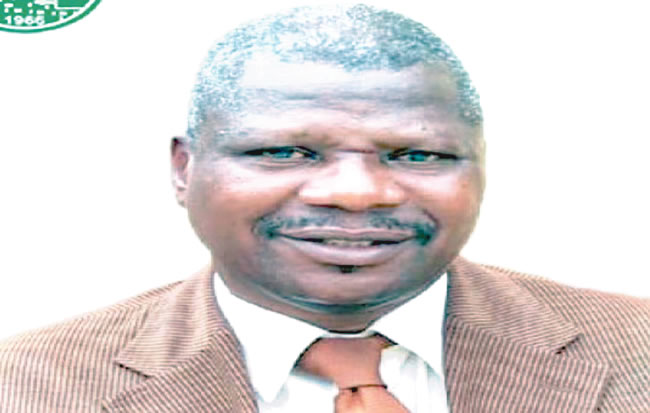Government must not compromise standards during project implementation —Adedire
Bisi Adedire is a Fellow of the Nigerian Institute of Town Planners (NITP) and former President of the Lagos State chapter of the institute. In this interview with DAYO AYEYEMI, the settlement development expert shares his opinion on the recent Economic Intelligence Unit (EIU) report on Lagos and advises the state government on what to do to improve the Lagos quality of life.
Do you agree with the report by the Economic Intelligence Unit, which ranks Lagos as the second worst city to live in out of 172 cities worldwide?
This is a very delicate question because if I say no I would be questioning the competence of a unit that has been in existence since 1946 and has provided data and reports over the years that have been confirmed to be accurate and useful for several forecasts and research by academic institutions and professionals. I read a while ago that many of the world's leading Ivy League business schools and colleges attest to the quality of the report provided by EIU. It would therefore be quite difficult to criticize a ranking that comes from them. It is important to know that the EIU World Quality of Life Ranking is an annual assessment of cities that began in 2002. Therefore, it is not a new initiative. It will shock you to learn that last year Lagos was also ranked second to last on the list, just above Damascus, a city in Syria like this year. And the truth is that Lagos has always been so low in the ranking since 2015. So there is nothing new in this ranking. We can only conclude that Lagos and Nigeria, by extension, are gradually becoming a bankrupt nation.
To be factual, when we critically analyze the current state of the top five factors considered for this ranking; which are stability, healthcare, culture and environment, education and infrastructure in Lagos State, we are most likely to conclude that the ranking is correct. Perhaps if the ranking had been done looking only at infrastructure as you mentioned we probably would have been better placed because as the breakdown of the result shows Lagos performed better than most cities placed above us in terms of infrastructure. However, all of these factors affected our ranking. If we wonder, how stable is the security in Lagos State? The rate of crime, theft, violent civil unrest is immense. Moving on to health care, what is the ratio of public health care to population in the state? Even those available, what is the quality of service? These questions and many more can lead us to conclude that the ranking is 100% accurate.
What are the factors to consider for the livability of a city?
Generally, livability is measured by factors that provide or improve quality of life. Basically, these factors are water, food, shelter, transportation, health care, education, and a safe and stable environment. People will want to live and stay in a place where these facilities are available and accessible. If we are to rely on the five (5) factors considered by EIU in its global livability ranking, that is; stability, health care, culture and environment, education and infrastructure, I think we already have the factors.
Stability talks about the level of security within the environment. No one would want to live in a place known for crime, menace, violence, unrest, terrorism, and all kinds of conflict. Like the verse of a popular Nigerian artist's song, no one wants to die but we have earned paradise. That is, a man's life is very precious to him. Stability is therefore a very important factor for habitability.
Health care, the main determinant of the death rate in any country is the availability of health facilities in the country. According to the World Health Organization (WHO), the top 10 causes of death worldwide in 2019 were health conditions such as heart disease, stroke, respiratory infections, cancers, kidney disease, etc The availability and quality of private or public health services is therefore essential to the quality of life of any city.
Culture and environment: Culture and environment in this context could refer to non-restriction of social and religious activities, cultural tolerance, environment free from floods, earthquakes, landslides, favorable climatic conditions, etc. These are major considerations in choosing a place to live.
Education – According to an English writer/philosopher, G.K. Chesterlon, education is simply the soul of a society as it passes from one generation to the next. The importance of knowledge for a society cannot be overestimated, which is why it is a major factor in the quality of life. The availability, supply and quality of private and public education are centered on this parameter. Infrastructure – This covers transport, housing, water, energy, electricity, telecommunications, etc. All these elements must be available, accessible (proximity) and affordable.
What can g...

Bisi Adedire is a Fellow of the Nigerian Institute of Town Planners (NITP) and former President of the Lagos State chapter of the institute. In this interview with DAYO AYEYEMI, the settlement development expert shares his opinion on the recent Economic Intelligence Unit (EIU) report on Lagos and advises the state government on what to do to improve the Lagos quality of life.
Do you agree with the report by the Economic Intelligence Unit, which ranks Lagos as the second worst city to live in out of 172 cities worldwide?
This is a very delicate question because if I say no I would be questioning the competence of a unit that has been in existence since 1946 and has provided data and reports over the years that have been confirmed to be accurate and useful for several forecasts and research by academic institutions and professionals. I read a while ago that many of the world's leading Ivy League business schools and colleges attest to the quality of the report provided by EIU. It would therefore be quite difficult to criticize a ranking that comes from them. It is important to know that the EIU World Quality of Life Ranking is an annual assessment of cities that began in 2002. Therefore, it is not a new initiative. It will shock you to learn that last year Lagos was also ranked second to last on the list, just above Damascus, a city in Syria like this year. And the truth is that Lagos has always been so low in the ranking since 2015. So there is nothing new in this ranking. We can only conclude that Lagos and Nigeria, by extension, are gradually becoming a bankrupt nation.
To be factual, when we critically analyze the current state of the top five factors considered for this ranking; which are stability, healthcare, culture and environment, education and infrastructure in Lagos State, we are most likely to conclude that the ranking is correct. Perhaps if the ranking had been done looking only at infrastructure as you mentioned we probably would have been better placed because as the breakdown of the result shows Lagos performed better than most cities placed above us in terms of infrastructure. However, all of these factors affected our ranking. If we wonder, how stable is the security in Lagos State? The rate of crime, theft, violent civil unrest is immense. Moving on to health care, what is the ratio of public health care to population in the state? Even those available, what is the quality of service? These questions and many more can lead us to conclude that the ranking is 100% accurate.
What are the factors to consider for the livability of a city?
Generally, livability is measured by factors that provide or improve quality of life. Basically, these factors are water, food, shelter, transportation, health care, education, and a safe and stable environment. People will want to live and stay in a place where these facilities are available and accessible. If we are to rely on the five (5) factors considered by EIU in its global livability ranking, that is; stability, health care, culture and environment, education and infrastructure, I think we already have the factors.
Stability talks about the level of security within the environment. No one would want to live in a place known for crime, menace, violence, unrest, terrorism, and all kinds of conflict. Like the verse of a popular Nigerian artist's song, no one wants to die but we have earned paradise. That is, a man's life is very precious to him. Stability is therefore a very important factor for habitability.
Health care, the main determinant of the death rate in any country is the availability of health facilities in the country. According to the World Health Organization (WHO), the top 10 causes of death worldwide in 2019 were health conditions such as heart disease, stroke, respiratory infections, cancers, kidney disease, etc The availability and quality of private or public health services is therefore essential to the quality of life of any city.
Culture and environment: Culture and environment in this context could refer to non-restriction of social and religious activities, cultural tolerance, environment free from floods, earthquakes, landslides, favorable climatic conditions, etc. These are major considerations in choosing a place to live.
Education – According to an English writer/philosopher, G.K. Chesterlon, education is simply the soul of a society as it passes from one generation to the next. The importance of knowledge for a society cannot be overestimated, which is why it is a major factor in the quality of life. The availability, supply and quality of private and public education are centered on this parameter. Infrastructure – This covers transport, housing, water, energy, electricity, telecommunications, etc. All these elements must be available, accessible (proximity) and affordable.
What can g...
What's Your Reaction?






















